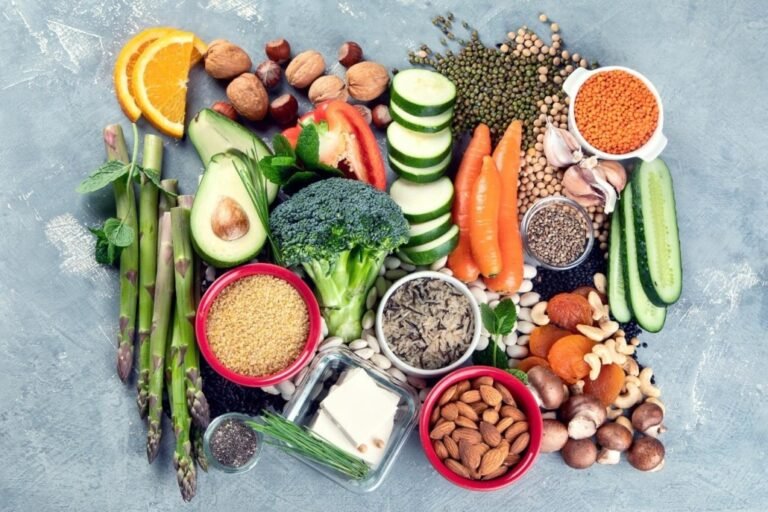
Superfoods You Should Add to Your Diet
Superfoods are nutrient-rich foods that provide a wide array of health benefits. They are packed with vitamins, minerals, antioxidants, and other beneficial compounds that help improve overall health and protect against chronic diseases. Incorporating superfoods into your diet can boost your energy levels, support your immune system, and contribute to better heart, brain, and digestive health. In this post, we’ll explore some of the best superfoods you should add to your meals and why they’re so beneficial.

1. Berries
Berries, such as blueberries, strawberries, raspberries, and blackberries, are packed with antioxidants, fiber, and essential vitamins. These antioxidants, particularly flavonoids, help reduce oxidative stress in the body, which can lower the risk of chronic diseases like heart disease, cancer, and neurodegenerative disorders.
Health Benefits:
- Rich in vitamins C and K, essential for immune health and skin health.
- High in fiber, which supports digestion and promotes healthy bowel movements.
- Antioxidants help fight inflammation and may reduce the risk of heart disease.
How to Add Them: Enjoy them fresh as a snack, blend them into smoothies, or sprinkle them over your oatmeal or yogurt.
2. Leafy Greens
Leafy greens like spinach, kale, arugula, and Swiss chard are some of the healthiest foods you can eat. They are rich in vitamins A, C, and K, along with essential minerals like calcium and magnesium. These greens are also a great source of fiber, which promotes healthy digestion and weight management.
Health Benefits:
- Excellent for supporting bone health due to their high vitamin K content.
- Packed with antioxidants that protect cells from damage and reduce inflammation.
- High in fiber, which aids in digestion and helps regulate blood sugar levels.
How to Add Them: Add them to salads, soups, or stir-fries. You can also blend them into smoothies for an added nutritional boost.
3. Chia Seeds
Chia seeds are tiny, but they pack a punch when it comes to nutritional value. They are high in omega-3 fatty acids, fiber, protein, and antioxidants. These nutrients are essential for brain function, heart health, and digestive health.
Health Benefits:
- Excellent source of plant-based omega-3 fatty acids, which support brain function and reduce inflammation.
- Rich in fiber, helping to improve digestion and prevent constipation.
- High in protein and essential amino acids, making them a great addition to plant-based diets.
How to Add Them: Sprinkle chia seeds on top of yogurt, oatmeal, or smoothies. You can also make chia pudding by soaking the seeds in milk or a plant-based alternative overnight.
4. Avocados
Avocados are known for their healthy fats, particularly monounsaturated fats, which help lower bad cholesterol levels and support heart health. They also provide a range of vitamins and minerals, including potassium, vitamin K, and folate, making them a nutrient-dense superfood.
Health Benefits:
- Full of healthy fats that promote heart health and improve cholesterol levels.
- High in fiber, supporting healthy digestion and weight management.
- Rich in antioxidants that help reduce inflammation and support eye health.
How to Add Them: Enjoy avocados in salads, sandwiches, or smoothies. You can also mash them on whole-grain toast or use them as a creamy base for dressings and dips.
5. Nuts and Seeds
Nuts and seeds, such as almonds, walnuts, flaxseeds, and pumpkin seeds, are packed with healthy fats, protein, and fiber. They are also rich in antioxidants and minerals like magnesium and zinc, which support overall health and prevent various diseases.
Health Benefits:
- Rich in healthy fats, particularly omega-3s, which improve heart and brain health.
- Provide a good source of plant-based protein and fiber, making them filling and beneficial for weight management.
- High in antioxidants that help protect the body from oxidative stress and inflammation.
How to Add Them: Snack on them raw or roasted, sprinkle them on salads or smoothies, or mix them into oatmeal for added crunch.
6. Turmeric
Turmeric is a vibrant yellow spice that contains curcumin, a powerful antioxidant with anti-inflammatory properties. It has been used for centuries in traditional medicine for its ability to treat various ailments, particularly those involving inflammation and joint pain.
Health Benefits:
- Curcumin, the active compound in turmeric, has strong anti-inflammatory and antioxidant effects.
- Supports joint health and may help reduce symptoms of arthritis.
- May improve brain function and protect against neurodegenerative diseases like Alzheimer’s.
How to Add It: Use turmeric in curries, soups, or smoothies. You can also make golden milk by adding turmeric to warm milk or a plant-based milk alternative.
7. Sweet Potatoes
Sweet potatoes are rich in complex carbohydrates, fiber, and vitamins A and C. They are also an excellent source of antioxidants, which help protect the body from oxidative stress and support healthy vision.
Health Benefits:
- High in beta-carotene, which the body converts to vitamin A for healthy vision and immune function.
- Packed with fiber, which supports digestion and blood sugar regulation.
- A good source of potassium, which helps maintain healthy blood pressure.
How to Add Them: Roast, mash, or bake sweet potatoes as a side dish, or incorporate them into soups, stews, or salads.
Conclusion
Superfoods are nutrient-dense powerhouses that can boost your health and prevent chronic diseases. By incorporating superfoods like berries, leafy greens, chia seeds, avocados, and others into your diet, you can reap the benefits of improved digestion, heart health, and overall well-being. Start adding these superfoods to your meals and enjoy the many health benefits they provide.







